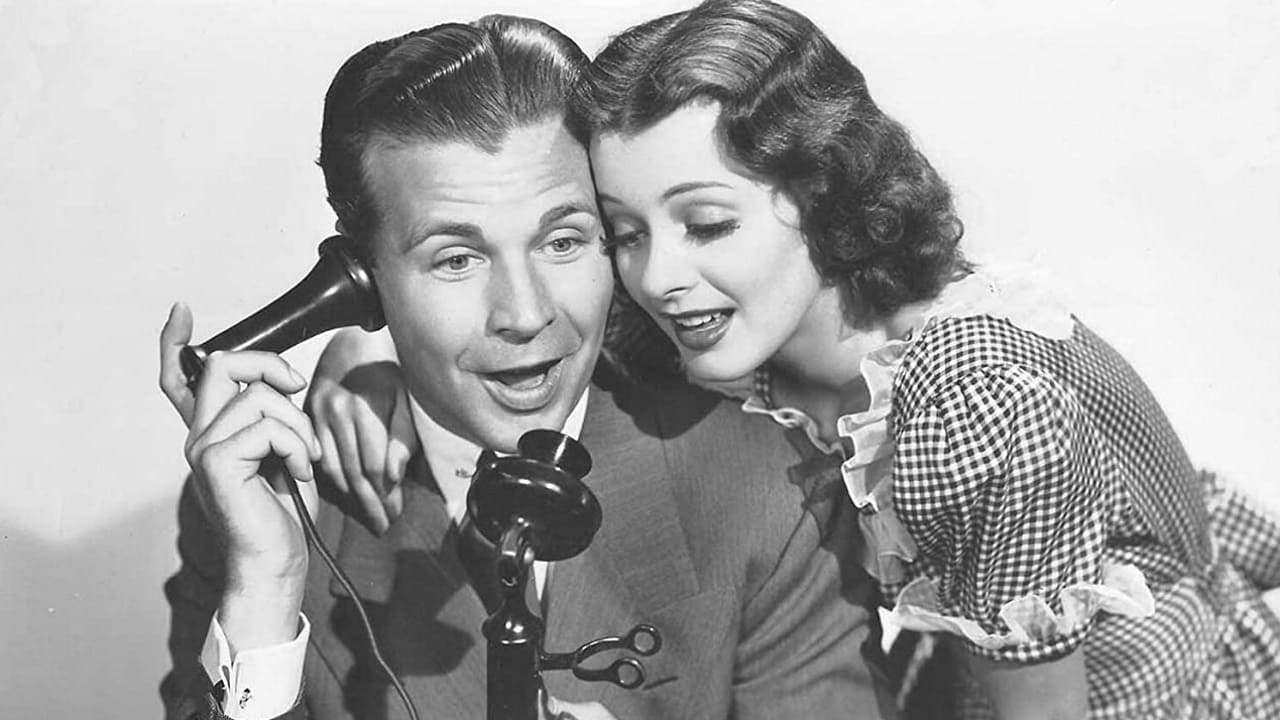



This is a dark and sometimes deeply uncomfortable drama
View MoreEach character in this movie — down to the smallest one — is an individual rather than a type, prone to spontaneous changes of mood and sometimes amusing outbursts of pettiness or ill humor.
View MoreThe tone of this movie is interesting -- the stakes are both dramatic and high, but it's balanced with a lot of fun, tongue and cheek dialogue.
View MoreThis movie feels like it was made purely to piss off people who want good shows
View MoreThe premise behind "Christmas In July" seems arresting: Capitalism is a sucker's game that can be fun to play anyway. Yet its execution is not sharp. This early Preston Sturges comedy is more interesting for the ideas that seemed to shape it than for anything on-screen.Jimmy MacDonald (Dick Powell) is a lowly office drone at a coffee company who has big dreams. His latest involves coming up with a new slogan for a rival coffee company, a contest hosted on a national radio program. Surprise, surprise, he gets a telegram telling him he's the winner, but no sooner does he share his joy with the neighborhood than everything goes to pot.Weighing in at under 70 minutes, "Christmas In July" won't overtax your patience. The bouncy concept of early 20th-century marketing gone awry is pleasant for a while. Compare it to the Depression-era films of Frank Capra, where some greedy fat cat was cheating the little guy of his just reward: Here Sturges gives us no easy villains, presenting us instead with a more sophisticated, rather disturbing if nonetheless heartwarming critique of American life.In fact, it's a mid-manager at MacDonald's company, a guy named Waterbury whom Sturges initially establishes as a bullying bad guy in the Capra mold, who winds up surprising both MacDonald and us by graciously offering a heartfelt, humanitarian perspective on things:"Ambition is alright if it works, but no system can be right where only one-half of one percent were successes and the rest were failures."Waterbury urges MacDonald to let go of his dreams and focus on doing what he can, content in being able to live upright and look people he cares about in the eye. It's a bracingly fresh and balanced perspective from Hollywood, then or now.The problem "Christmas In July" has may be related to that sensibility, though: It's stiff and takes itself too seriously most of the way through. Taken from a stage play, the film only has five or six scenes, which means Sturges doesn't give himself much room for subplots. Powell is surprisingly hard to warm up to in the central performance, and the sentimentality gets rather gooey, as when Jimmy and his girlfriend Betty (Ellen Drew, not much better than Powell) play Santa to their impoverished neighborhood, treating the kids to ice cream and a wheelchair-bound girl with her own doll. The girl has black rings painted under her eyes in case the wheelchair wasn't enough for you.For gags, we get too much sputtering, snarling, and people putting on goofy hats. There's even people pelted with fish and vegetables. It's like Sturges went back and added this material when he realized he wasn't getting enough laughs in the reading room.The whole marketing gimmick of coming up with a new slogan for Maxford House Coffee, because everyone agrees the old one is too tired ("Grand To The Last Gulp" doesn't sound like anything that would fly today, does it?) has potential, and MacDonald's alternative slogan is pretty funny because it is so terrible. It's long, requires convoluted logic to appreciate, and serves to remind people why they don't use the product half the day."It's a pun," MacDonald explains to Dr. Maxford himself."It certainly is," Maxford deadpans. "It's great. I can hardly wait to give you my money."But the notion of marketing as a science people put their faith in without really understanding is only lightly touched upon. The reaction of Jimmy's employer at the other coffee company seems similarly like a wasted opportunity, as his apparent brainstorm has benefited a competitor. They just want a chance to bask in his genius, too, until it is exposed for what it really is. That's pretty much the whole of the plot, Jimmy and Betty trying to do right in good and bad times."Christmas In July" has some fun performances, a clever ending, and a pure heart, but don't mistake this for one of those classics upon which Sturges built his reputation.
View MoreThis early Preston Sturges satire suffers by comparison to his later films, but even if it never reaches the dizzy heights expected of a Sturges comedy it still presents an enjoyable (if at times too predictable) farce. The earthbound scenario offers none of the director's usual madcap flights of fancy, following an unlucky entrant in a marketing slogan contest (Dick Powell) who mistakenly believes himself the winner of a $25,000 grand prize. It's all the result of an innocent practical joke, but the gag backfires when everyone else, including the contest sponsor, believes it too. The unsuspecting Powell suddenly finds the world off his back and at his feet, and the consumer frenzy that follows shows glimpses of the classic Sturges brand of anarchy, sadly lacking from the rest of the film. Lots of running around and shouting at double-quick speed can't really camouflage the lack of belly laughs, but the cast works up plenty of enthusiasm, and the final image (look quick) is wonderful.
View MoreA clerk making $22 per week dreams of winning the $25,000 grand prize in a coffee company's slogan contest. Sturges' second directorial effort is not only a sweet and simple comedy but also fast-paced and efficient, wrapping up in just over an hour. As the ambitious but earnest sloganeer, Powell basically plays the role of the straight man, surrounded by loony characters, including Walburn as the flustered owner of Maxford House, not to be confused with Maxwell House, and Sturges regular Demarest as one of the judges of the contest. Despite the short running time and the emphasis on comedy, Sturges manages to make the characters human.
View MoreCould this be one of Preston Sturges's most under-appreciated comedies? -- in addition to being one of his funniest. In "Sullivan's Travels," Preston Sturges has the Joel McCrea character speak admiringly of fellow director Frank Capra. In "Christmas in July" possibly Sturges was trying to suggest to Capra how to handle sentiment without falling into sentimentality --- the scene where Dick Powell is handing out presents to his neighbors, and he gives a doll to a crippled girl in a wheelchair -- a remarkably tender moment in the midst of a hectic funny scene -- done with just the right deft touch.One of my favorite lines occurs when the owner of the Maxford Coffee Company (played by bug-eyed character actor Raymond Walburn) sarcastically tells apparent contest-winner Powell, "I can't wait to give you my money!"Sturges also shows that you can have plot complications without resorting to stock villains --- no simplistic class warfare here, such as you'd find in a Frank Capra film -- rich and poor are equally lovable -- even gruff opinionated William Demarest. Sturges embraces all of humanity, all classes.This film has an exceptionally satisfying "feel-good" ending --- the audience is made aware of the exuberantly happy ending before the main characters realize the change in fortune about to befall them --- the camera zooms across the city to reveal that a decision is going to unravel all the plot complications --- it's a breathlessly whirlwind revelation to the audience! A unique "feel-good" ending that tops all other "feel-good" endings! As far as I know, the first person to point out the unique nature of this ending was Dale Thomajan in his 1992 book "From Cyd Charisse to Psycho : a Book of Movie Bests."
View More